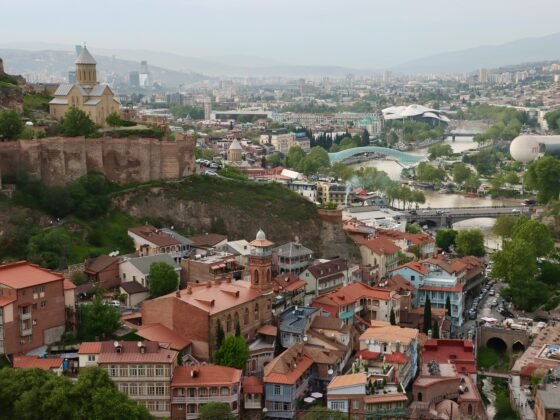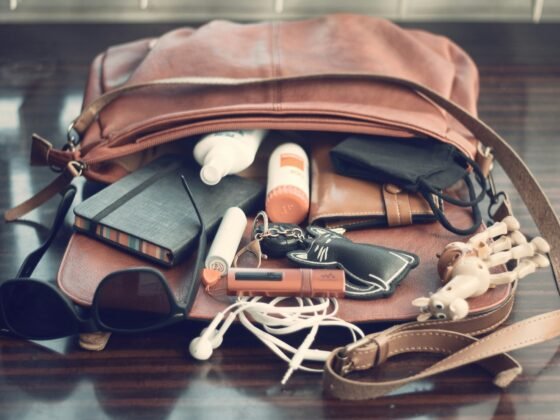Planning your next adventure on a budget is limiting, especially when you want to enjoy all the experiences a destination can offer. However, there’s a way to work around this. Did you know you can save money while you travel? Seems impossible till you follow the below guide and use these tricks. Your bank account and your wallet sure will be happy after this.
Create a Realistic Budget
After picking a destination, get right to the budgeting. Financial planning, specifically for longer trips, should be done well in advance. This will also help you plan your savings as well. Here’s everything you need to consider when you’re making your budget:
- Getting to your destination and returning.
- Researching various accommodation options.
- Ways of commuting within the place.
- Places to fuel yourself with good food and drinks.
- Experiences you want at the destination.
- Souvenirs or gifts you want to buy from the destination.
- Setting aside money in case of emergencies.
Research is your best friend during this period. You will end up finding economical deals and the best prices on tickets, accommodation, and experiences too. One thing you should definitely stick to is your budget. Avoid exceeding it the best you can.
Save More by Travelling Off-season
One of the easiest ways to save money is travelling when others aren’t. This means steering clear of holiday season or peak season. You’re wondering what benefits you will get. A bunch! Cheaper flights, accommodation, dining experiences, tourist experiences, and less crowds. This gives you the opportunity to truly immerse yourself in the destination’s culture at a reasonable cost.
The next steps for saving during travel are booking your flights and hotels in advance. Usually, the best fares for flights are available mid-week. Most people travel by the end of the week, which explains the hike in the fare. One trick you can use while booking your flight tickets is making yourself invisible online. Clear your cookies, your history, and browse on incognito mode. Businesses are keeping a track of your habits, which affects the prices. Also, try flying to your destination during unpopular hours like early morning or late at night.
To save on accommodation, check out the various options available at the destination. Hotels, serviced apartments, hostels—compare prices for each of them on different sites. Search for places that offer discounts, free breakfasts, and free Wi-Fi. Try finding a place that has a kitchen so you can cook your meals instead of spending at restaurants too frequently. You can always buy groceries from the farmers market and prepare a nice meal for yourself.
Look for Freebies
Travelling on a budget doesn’t have to be restricting. There are ways of getting the best out of the place by keeping a lookout for freebies. For instance, if you love visiting museums then you should go during free museum days. However, the ques during these days can run long so work your way around this.
Look for free events happening during the time of your visit in that particular place. It could be events like festivals, concerts, screenings, and exhibitions—whatever suits your needs. Another thing you can save on is tours of the destination. Some of the best tours of the city or town are usually free. You can look for these either online or in a guidebook. Check out local sites for local offers, discounts, or coupons on dining or other travel experiences.
Hit the streets to thoroughly enjoy the place you’re visiting. Get an idea of what’s happening around the area and walk up to these places. This way, you won’t be spending too much on inter-city transportation. And, you’ll be surprised what you discover at a corner.
Explore the Place for Good Meals and Shopping
If you want to save on your food expenses, you should follow the ‘6 Block’ rule. Avoid eating at food joints in an area with tourist attractions. Restaurants tend to increase their prices in these locations and it’s best to go offbeat when you’re looking for a good meal.
You can check out lunch specials or buffets at restaurants. These are usually priced lesser than the a la carte menu, and will help you save. Indulging in street food is a great way of saving money as well. Street food is cheaper in comparison to food at restaurants, and you get the chance to try out local cuisine. You can also visit local markets for local delicacies and fresh fruits.
Carrying your own water bottle is another way to save your money. Especially, if you’re going to be walking around the city and exploring the place. Instead of buying bottles of water every time, get your own and try refilling it whenever possible.
A tip before you start shopping—make a list. This will help you track your expenses and also limit you from exceeding your budget. You can either use an app on your phone or jot down the list on a piece of paper. Also, avoid shopping near tourist attractions. The prices there are usually higher because of the crowds it pulls in. Visit stalls at local markets or go to local shops to pick up souvenirs.
You can also use credit cards for shopping. Some cards let you earn cashback or reward points on every purchase you make. This, in turn, helps you save more on your purchases.
Travel with the Right Type of Money
In this day and age, there are multiple ways to pay for your transactions—cash, credit and debit cards, and traveller’s cheques.
Let’s start with cash, one of the easiest ways purchase things. However, if you’re travelling overseas, you will have to exchange your currency for foreign currency. You can do this online, at exchange kiosks, or at banks. Before resorting to one place for exchange, do your research to figure out the differences in the rates. This will help you figure out how much a business is earning on each transaction and will also get you the best deal.
For credit credits, you should pick the one that suits your travel needs. If you’re going overseas, travel credit cards offer a wide range of benefits like insurance, reward points, and also privileges to lounges. Take advantage of this to save and to stay protected during your travels. Some credit cards charge transaction fees on foreign currency. It’s best to get in touch with your bank and enquire if they charge fees for ATM usage and foreign transactions.
In case you want to compare cards or want to check their fees and interest/profit rates, visit bbazaar.my. Check whether you are eligible to get your preferred card, and apply right away. The benefit of using a Travel Card is the commercial exchange rate many give you when buying in the local currency.
Once you have figured out the best practices, you can travel and spend worry-free. Just make sure you have the right cards and finances working as a support pillar for you












